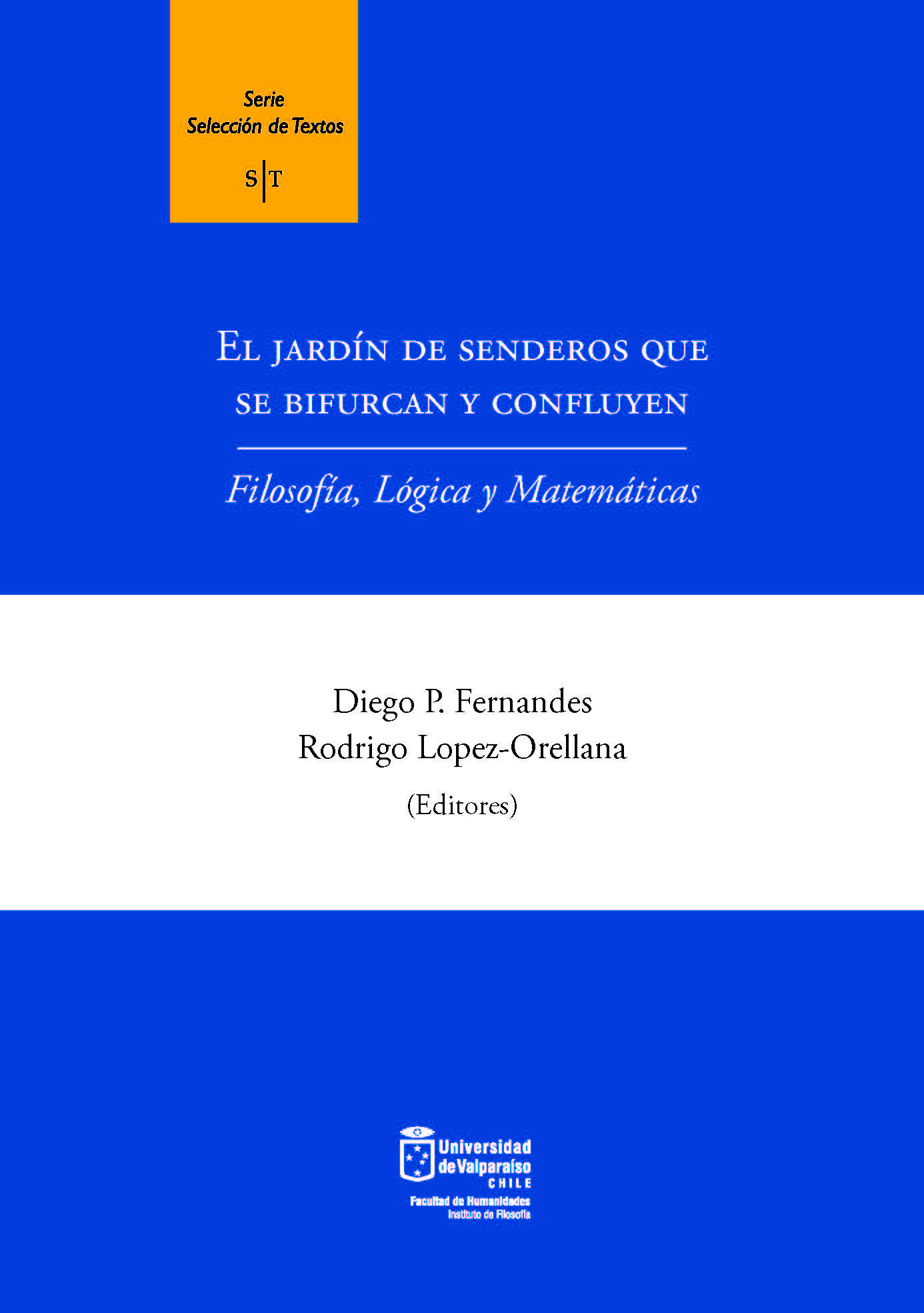Demonstração, Tempo e Verdade na Filosofía da Matemática: Uma Perspectiva Fenomenológica
DOI:
https://doi.org/10.22370/sst.2020.8.4932Resumen
Conceitos matemáticos são eternos ou se modificam ao longo do tempo? As definições matemáticas, por meio das quais lidamos linguisticamente com esses conceitos, os descrevem ou os criam? Assumindo que a matemática seja uma ciência composta por verdades necessárias, como submeter a verdade de uma proposição˜ a condição empírica e temporal de posse e conhecimento de uma demonstração? Sendo a evidencia de uma inferência ratificada por princípios lógicos, como argumentar em defesa desses princípios, uma vez que o princıpio em questão pode estar pressuposto na própria argumentação? Tendo como horizonte essas questões, nosso objetivo ˜ e propor uma maneira coerente de conciliar a condição contingente e temporal de posse de uma demonstração com o caráter necessário e atemporal do valor de verdade de proposições matem ˜ áticas, de modo a resolver alguns dos problemas que se originam da associação que o intuicionismo faz entre demonstração e verdade.
Descargas
Referencias
Alves, D. D. P. (2011). Logic is metaphysics. Principia, 15(1):31–42.
Brouwer, L. (1975c). Essentialy negative properties (1948a). In Heyting, A., editor, Collected Works, pages 478–479. North-Holland, Amsterdam.
Brouwer, L. (1975e). The effect of intuitionism on classical algebra of logic (1955). In Heyting, A., editor, Collected Works, pages 551–554. North-Holland, Amsterdam.
Brouwer, L. (2011). Historical introduction and fundamental notions. In van Dalen, D., editor, Brouwer’s Cambridge Lectures on Intuitionism, chapter 1, pages 1–19. Cambridge University Press, Cambridge.da Silva, J. J. (2011). On the principle of excluded middle. Principia, 15(2):333–347.
da Silva, J. J. (2017). Mathematics and Its Applications: A Transcendental-Idealist Perspective. Springer, Switzerland.
Dummett, M. (1978). Wittgenstein’s philosophy of mathematics. In Dummett, M., editor, Truth and Other Enigmas, chapter 11, pages 166–185. Harvard University Press, New York.
Dummett, M. (1987). Reply to Dag Prawitz. In Taylor, B., editor, Michael Dummett: Contributions to Philosophy, chapter 9(E), pages 281–286. Springer, Netherlands.
Dummett, M. (1998). Truth from the constructive standpoint. Theoria, 64(2-3):122–138.
Husserl, E. (2008). Logical Investigations Volume I. Routledge, New York.
Martin-Lof, P. (1991). A path from logic to methaphysics. In Corsi, G. e Sam- bin, G., editors, Atti del Congresso Nuovi Problemi della Logica e della Filosofia della Scienza, Viareggio, 8-13 gennaio, 1990, pages 141–149. CLUEB, Bologna.
Martin-Lof, P. (1994). Analytic and synthetic judgements in type theory. In Parrini, P., editor, Kant and contemporary epistemology (1992), pages 87–99. Kluwer, Dordrecht.
Martin-Lof, P. (1996). On the meaning of the logical constants and the justification of the logical laws (1983). Nordic Journal of Philosophical Logic, 1(1):11–60.
Martin-Lof, P. (1998b). Truth and knowability: on the principles C and K of Mi- chael Dummett (1995). In Dales, H. e Oliveri, G., editors, Truth in Mathematics, chapter 5, pages 105–114. Clarendon Press, New York.
Pereira, L. (2014). On the constructive notion of truth and a new sea-battle problem. In Schuback, M. e Pereira, L., editors, Time and Form: Essays on Philosophy, Logic, Art, and Politcs, pages 183–196. Axl Books, UK.
Prawitz, D. (1998). Truth and objectivity from a verificationist point of view. In Dales, H. e Oliveri, G., editors, Truth in Mathematics, chapter 2, pages 41–52. Clarendon Press, New York.
Prawitz, D. (2012a). Truth and proof in intuitionism. In Dybjer, P., Lindstrom, S., Palmgren, E., e Sundholm, G., editors, Epistemology versus Ontology: Essays on the Philosophy and Foundations of Mathematics in Honour of Per MartinLof¨ , pages 45–67. Springer London, Limited, Dordrecht, Heidelberg, New York, London.
Prawitz, D. (2012b). Truth as an epistemicnotion. Topoi, 31(1):9–16. 142
Raatikainen, P. (2004). Conceptions of truth in intuitionism. History and Philosophy of Logic, 25:131–145.
Sundholm, G. (2014). Constructive recursive functions, Church’s thesis, and Brouwer’s theory of the creating subject: Afterthoughts on a parisian joint session. In Dubucs, J. e Bourdeau, M., editors, Constructivity and Computability in Historical and Philosophical Perspective, pages 1–36. Springer Netherlands, Amsterdam.
Tieszen, R. (1989). Mathematical Intuition: Phenomenology and Mathematical Knowledge. Kluwer Academic Publishers, Dordrecht.
Tieszen, R. (2005). Phenomenology, Logic, and the Philosophy of Mathematics. Cambridge University Press, Cambridge.
Tieszen, R. (2010). Mathematical realism and transcendental phenomenological idealism. In Phenomenology and Mathematics, chapter 1, pages 1–22. Springer, Dordrecht.
Tragesser, R. (1977). Phenomenology and Logic. Cornell University Press, Ithaca and London.
Descargas
Publicado
Número
Sección
Licencia

Esta obra está bajo una licencia internacional Creative Commons Atribución-NoComercial-SinDerivadas 4.0.

